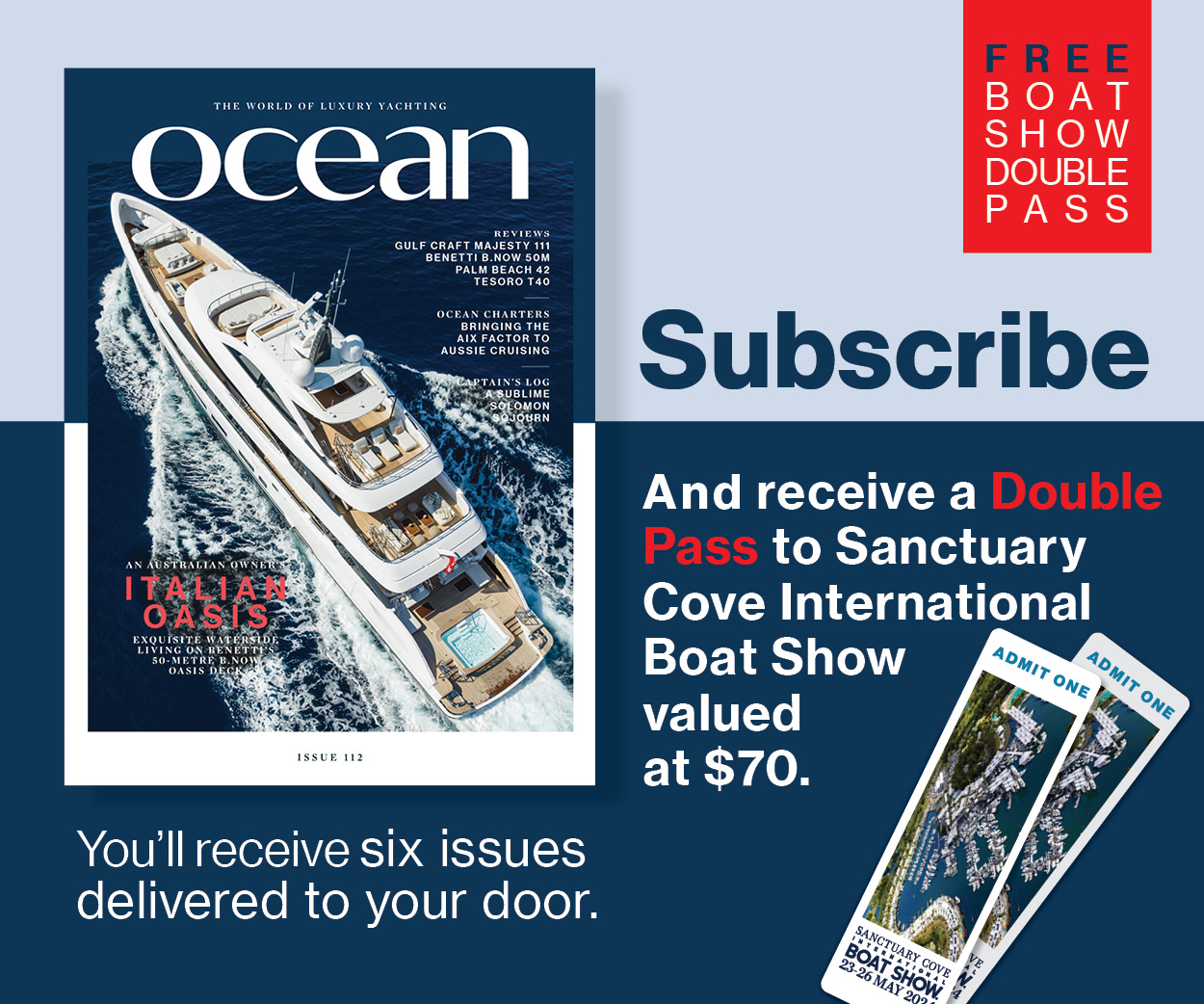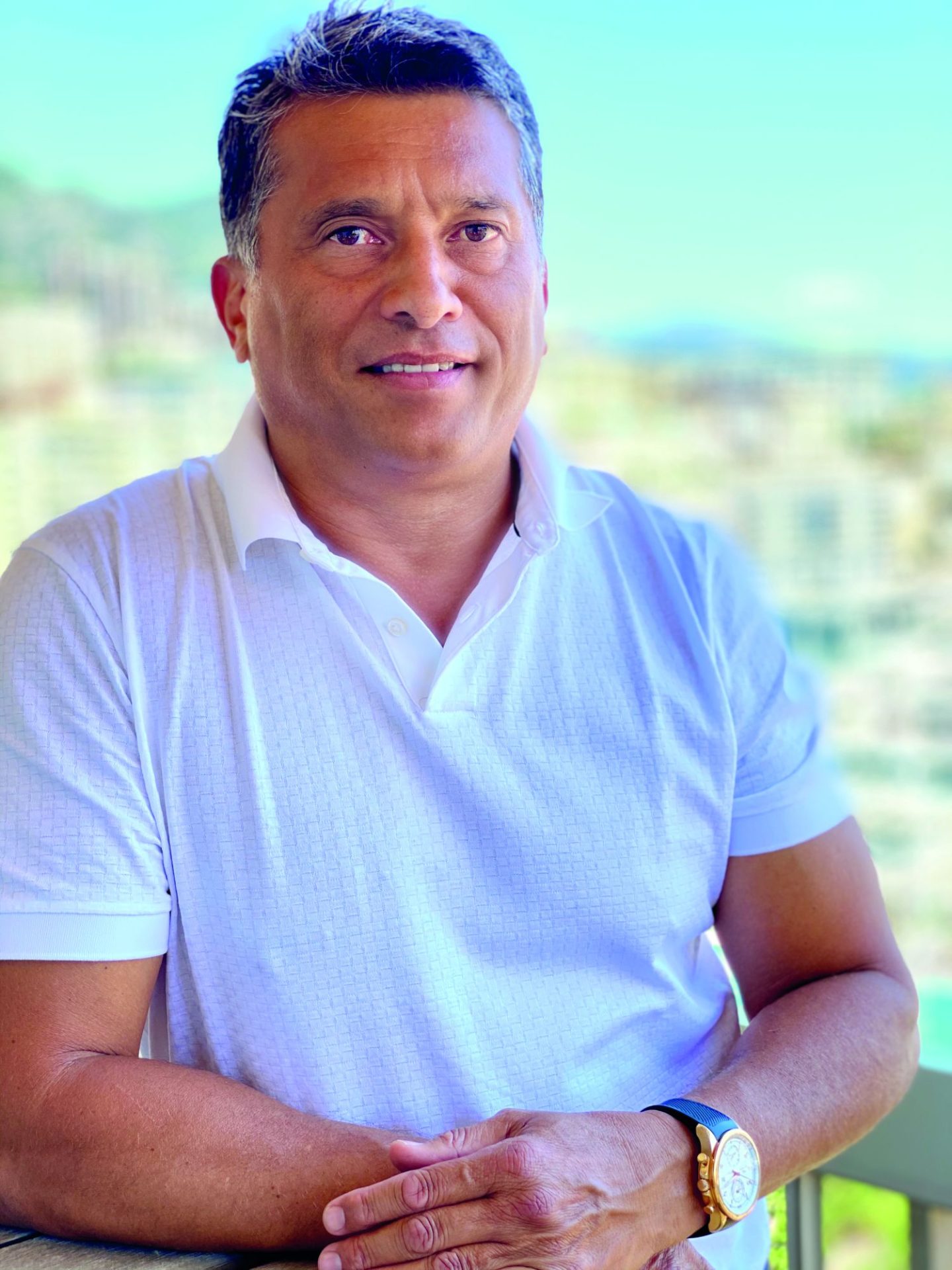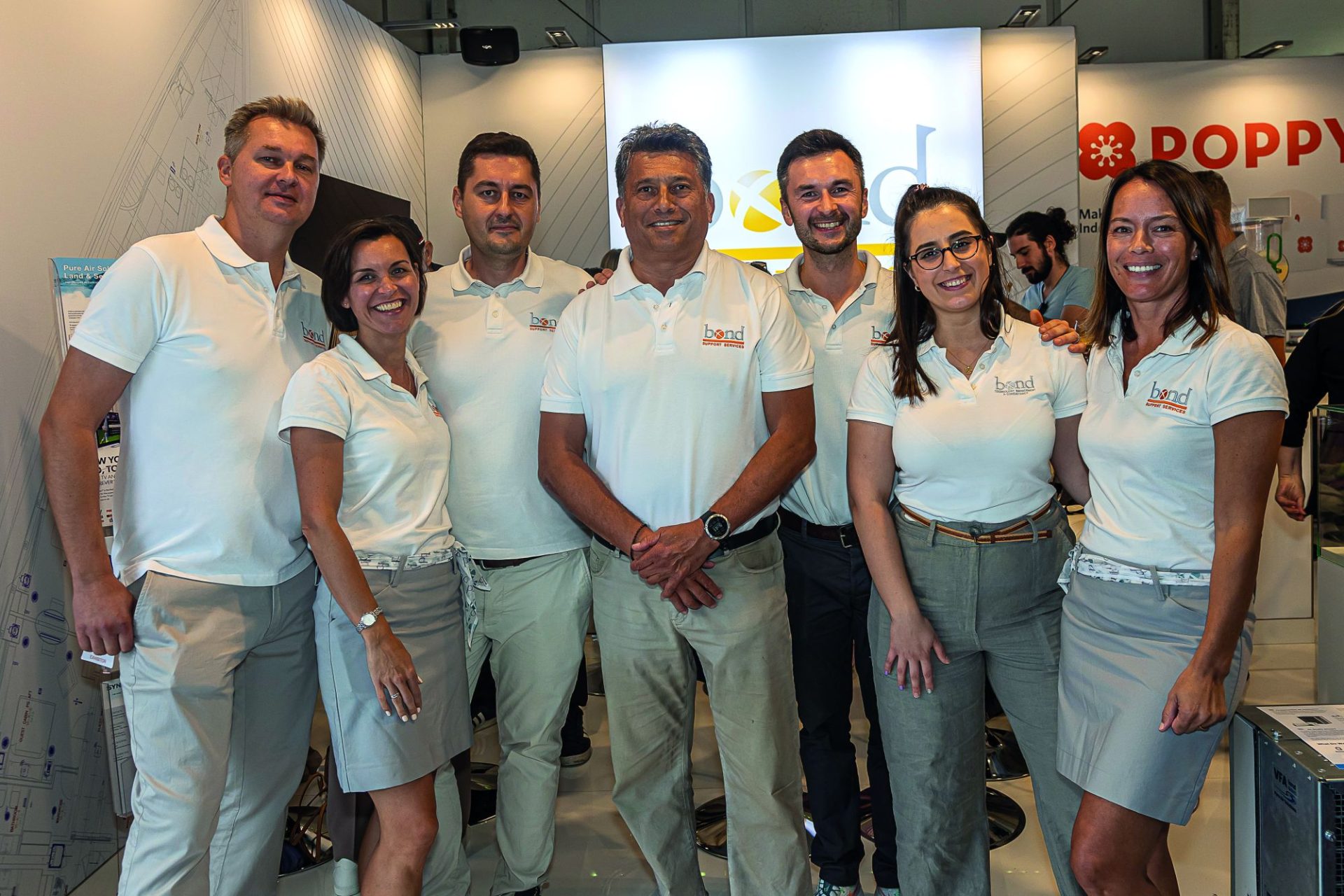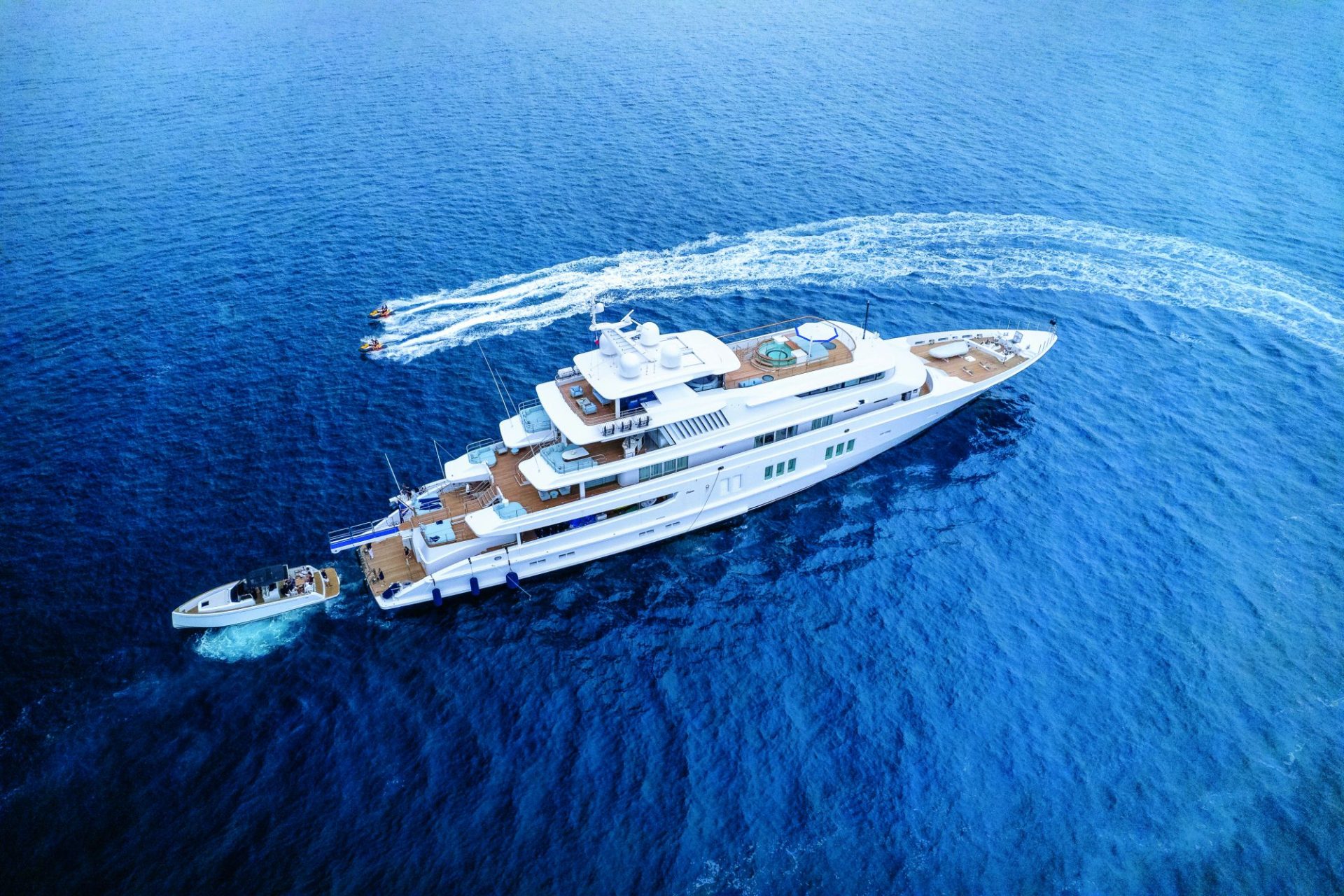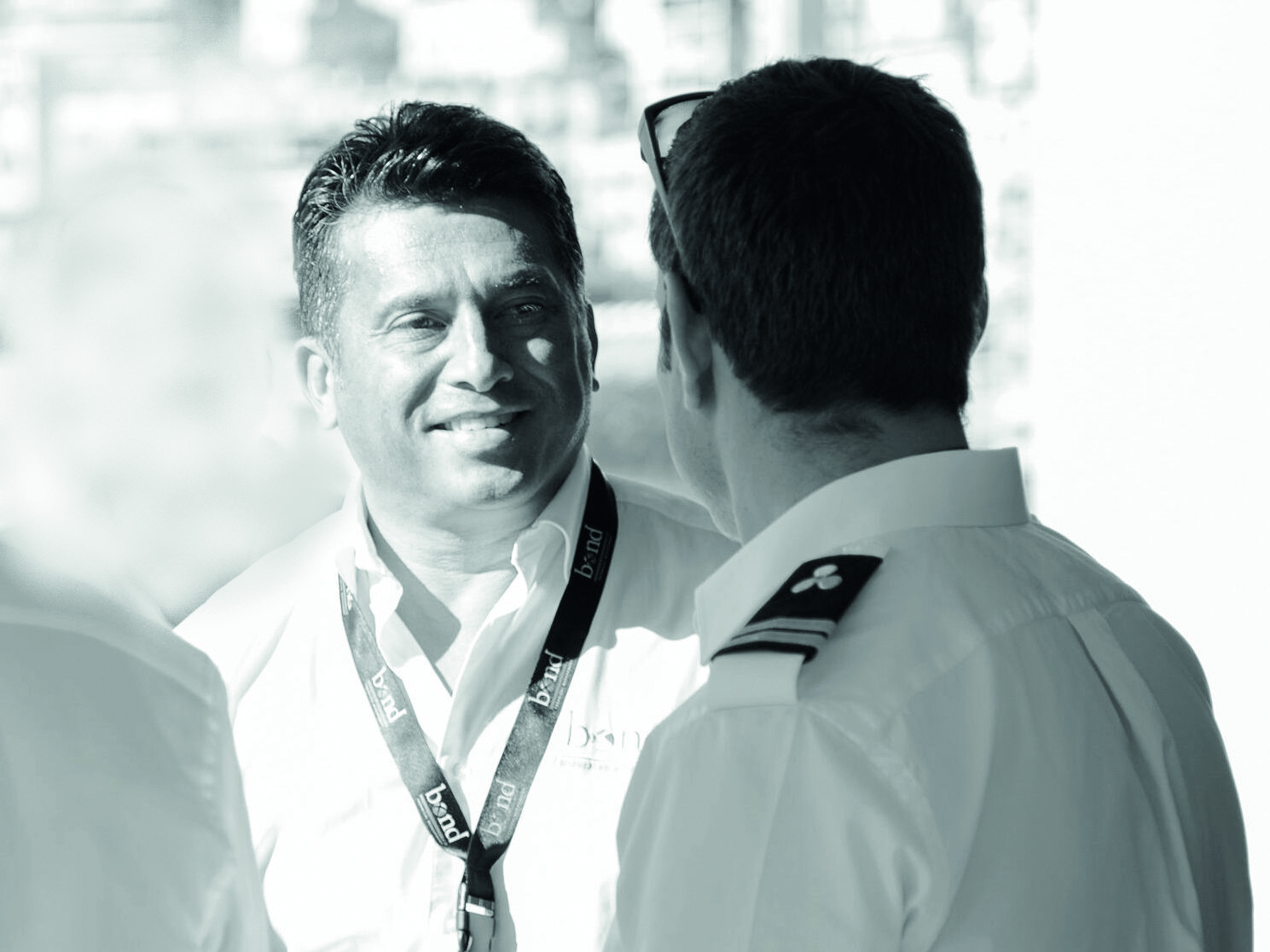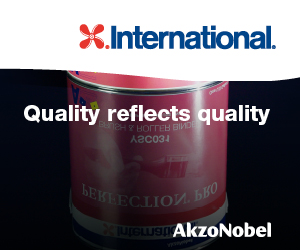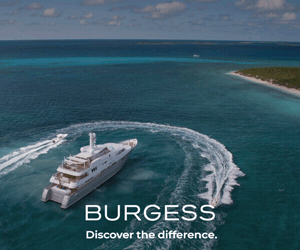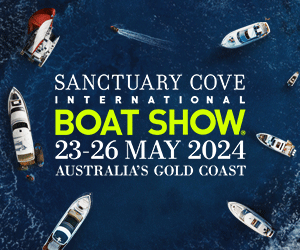Pioneering approach
Australian electrical engineer Will Faimatea made the leap from aerospace and defence to become the world’s first modern superyacht electro-technical officer (ETO).
30 June 2023
When Will Faimatea, Director at Bond Technology Management, last appeared in Ocean, he’d just made the move from yacht electrotechnical officer (ETO) to founder of the AV/ IT consultancy Bond Technology Management in Monaco. Some 16 years on, we caught up with him to find out how business is going and how life has been.
Will Faimatea jumped ship in 1994 from teaching the Global Maritime Distress and Safety System (GMDSS) course at Honeywell Aerospace and Defence onto superyachts, to become the world’s first modern superyacht electro-technical officer (ETO).
The yacht was the iconic 72.5-metre Coral Island, styled by legendary Australian yacht designer Jon Bannenberg, which now, in a curious twist of fate, is owned by Australian businessman Ian Malouf and was recently refitted as Coral Ocean.
As a pioneer of a new breed of technical specialist on the increasingly complex yachts in the 1990s, Faimatea was perfectly positioned to define the ETO role in terms of not only electrical engineering but also AV and IT as onboard networks and general consumer electronics began to accelerate in development.
It also positioned him perfectly to step ashore and pioneer a new type of company in the yacht industry, geared toward consulting on the AV/IT requirements of new and existing superyachts.
Bond Technology Management was born in 1994 in Cyprus, and Faimatea, who set up home in Monaco, was featured in Ocean magazine just as we were in our fledgling stages. We haven’t looked back since – and neither, it turns out, has Faimatea.
Ocean magazine: When you first appeared in Ocean, you’d just moved ashore and started Bond. How did those first months and years develop?
Will Faimatea: It’s reasonably commonplace now to find AV/IT companies and technology consultants in the yachting industry, but back then it was really new – it was a difficult sell to start with because people hadn’t heard of it, even though they clearly needed it.
Then, a couple of years after founding the consultancy side, we started the industry’s first AV/IT support business, supporting the yachts’ onboard systems 24/7. Because I was inside the industry, we’d seen very quickly that the integration companies would look for the next build pretty much as soon as they finished the job on a current build.
I saw it as both a need and an opportunity because I was getting calls over the weekend asking for help from boats we’d consulted on.
I remember naively asking one of them, on a Saturday, why they didn’t just call the integrator. I was told, of course, that the integrators don’t work weekends.
An ETO I knew on Pelorus wanted to come ashore, so I called him and said I thought there was an opportunity for a support business in yachting, and we started that very quickly together. We kept it quiet, building up our client base for five years before advertising because we knew others would copy us. The AV/IT support business is now an industry norm.
As something of a pioneer, both as an early ETO and as an AV/IT consultancy and support business, what other innovations have you worked on?
We built something called Jetstream, which we got a patent for. It was basically streaming clients’ content to vessels before streaming was a common thing. Three Bond engineers built it, and we sold the rights to another company to run it – it was the first dedicated product of that type for the yacht industry.
Now that bandwidth is so much cheaper, it’s a much more affordable product, and the required bandwidth is now available on planes too, which means you can access your satellite receiver and content worldwide. We also started our first IT training courses in 2008 for chief engineers and captains and the like who just wanted to fix basic IT issues such as a printer not working – most of the IT courses available at the time were geared toward IT professionals. We still run those courses 14 years on, and we’ve really fine-tuned them.
Also, although larger yachts of 70 metres and up will usually have an ETO now to maintain the complex systems, yachts of say 60 metres and below typically don’t have an ETO, but their systems have the same complexity and the IT system has to be maintained – it’s as much a problem on a smaller yacht as a larger one when the internet goes down! We’ve also developed AV courses because we know what’s used in the industry; we know what works and what problems crop up. There’s no pass or fail mark, it’s about sustaining or improving people’s knowledge base.
You set up an office in Monaco – are you still based there?
Yes, although we’ve opened up more offices over the years. Cyprus is our head office, and we set up an office in Hamburg, Germany, then in Amsterdam, the Netherlands. We now also have two offices in Barcelona, Spain – one in the MB92 refit yard and one in Port Vell – as well as a remote support office in South Africa and offices in Brisbane and Boston, which helps us follow the sun and reduces the need for shift work.
We also, incidentally, have a great retention rate. We celebrated our 15th anniversary last year – it was actually 16, but we discounted a year due to COVID – and I gave out 12 thank-you gifts to staff who’ve been with Bond for more than 10 years.
I’m very proud of the company in that respect. It also means we bring a pretty serious level of experience to the table, which has helped enormously when breaking into new areas. It’s helped us get into the air purification business too, which by coincidence we started looking at before the pandemic hit in 2020.
Indeed, we’ve branched out into other areas of yachting after looking into different elements such as propulsion, bridge systems, paint, even interior design! Some were so far left field from our primary business they just didn’t fit. Still, we do now cover not just AV/IT but also lighting, communications, cyber security, bridge and navigation systems, and HVAC and air purification.
What was it like setting up business in Europe as an Australian ex-crew member, and why Monaco? How has the industry in Australia evolved over the past two decades?
We set up in Monaco because I believe it allows for more of an entrepreneurial flair to flourish compared to neighbouring France, although the company is actually headquartered in Cyprus. I was in the fortunate position to be able to choose.
I also felt back then that Monaco was a real superyacht hub – nearly all the management companies were there, as well as brokerage houses and other businesses – so, from a yachting perspective, it’s a very good place. And I can live and breathe yachting while I’m in Monaco!
My good friend Richard Morris, who runs Australian Superyachts, went ashore before I did and started his company in Sydney. He’s been able to grow his business because of the attention Australia has as a cruising ground, and with its newbuild and refit yards specifically set up for yachting marinas.
When I got into yachting in the 1990s and found my first boat was 72 metres, the biggest I’d seen at Australian boat shows was around 25 metres! The industry has grown enormously, and there are now a number of successful Australian businesspeople and ultra-high-net-worths who’ve also bought yachts. And it’s a nice coincidence that Ian Malouf bought Coral Island (now Coral Ocean), the first yacht I ever worked on!
Have you been on board since the Maloufs refitted her?
No, but we took an office in the STP yard in Palma, Mallorca, when they were managing the refit, and I saw some pictures on the wall. I’ve seen some New Year’s Eve tickets advertised, so I could be tempted to see if there’s a ticket left and go on board with my family!
You were an early supporter of Yacht Crew Help, which offers a 24-hour helpline to yacht crew as well as various health and welfare resources. What drew you to making Bond a primary partner?
I got an email in the early days of the pandemic saying they were struggling to get money to get Yacht Crew Help (yachtcrewhelp. org) off the ground. The International Seafarers’ Welfare Association Network (ISWAN) had a program already running, but there wasn’t a portal specific to yachting.
So, I called Colin Squire, owner of Yachting Matters, who was helping to launch the Yacht Crew Help website, and asked him what they needed. They were only getting small, individual donations in, so he said €20,000. I committed a large part of that in May 2020, and that precipitated other big companies in yachting to jump on board too.
I still support them because the statistics clearly show the impact of yachting on crew welfare – either through active abuse or other elements, such as loneliness or lack of sleep – and I know all this from being yacht crew myself. It’s a very worthwhile cause, and something that just wasn’t available to crew before Yacht Crew Help was set up.
You also recently invested in the Superyacht Technology Network – what’s that and what attracted you to it?
Essentially, it’s a network of information and events centred on technology in the superyacht industry, though I should point out this is a personal investment, not through Bond. I’m looking at some legacy projects that I can be involved with, and help by mentoring and supporting financially.
The Superyacht Technology Network, which was set up by Jack Robinson, has a real place in helping smaller tech companies in the industry who perhaps can’t afford to take a stand at the Monaco Yacht Show, for example. His show, on the other hand – the next of which is scheduled for March 2024 – has an entry price point that’s much lower than existing industry shows. I was very impressed with last year’s show, especially with the shipyards and the speakers who attended, and I saw real potential in it.
I’m very supportive of new companies coming into the industry and aside from wanting the show to be successful as an investor, it’s also giving an opportunity to all companies, large and small, to be at a show. It’s a two-day, one-night event, which is very efficient!
With 16 years of experience setting up companies in a range of jurisdictions, I’m very happy to help on that level too. Jack and I speak on a weekly basis, so I know exactly where the money is going and how it’s being used – I’m very impressed with how it’s going so far.
We see a lot of talk about the Australian crew members of today being essential to leading Australia’s home superyacht industry of tomorrow. Do you think you and Morris were unique as Australian crew setting up shoreside businesses in the early 2000s, and how has that changed?
I see a very big difference. When I was crewing, I was always going to leave at some point because I worked 11 months on, one month off. And yes, you did get weekends, but there weren’t restrictions on how many hours you could work – you just worked – and I embraced that because hard work moves you forward. Of course, there’s health and safety now, and you have to log your hours under the Maritime Labour Convention. But we could feel rotation coming when I was on the yachts – it was already there for a lot of captains and some chief engineers.
I did seven years as yacht crew, but now, when everyone is on rotation, it will take them twice as long to gain experience if they’re rotated off half the time. But the biggest difference I see, especially with ETOs, which is where my focus is, is that the job can be for life now. I loved my job, but I couldn’t have maintained it because it’s a 24/7 role. I had sleep deprivation issues for sure, without even knowing it, and that aspect got me ashore out of necessity.
But it’s a terrific job and now, with rotation, why would you leave? There are actually fewer people coming ashore now because the whole industry has matured and is more professional. In fact, I’m pretty sure I wouldn’t have left and started Bond if I’d had rotation!
Any words of wisdom as an expat, or advice for Australians considering a career in yachting?
The world has got a lot smaller because of communications, the internet and flying, so I think the loneliness is much less now – I was still writing postcards home to my parents when I was in yachting! Also, I took advantage of the opportunities as I saw them at the time, but there are always more opportunities for people within the industry who will see things that I won’t now.
From an expat point of view, having an Australian passport is quite helpful, and Australians are pretty well respected and seen as easy to get on with as crew – there are still plenty of Australians in the yachting industry.
It’s a big step to decide to leave home and do something somewhere else, but I also remember consciously thinking that I was going to give it a go and start Bond, and it if didn’t work out, the worst that would happen was I’d go back to Sydney, which never happened!
I still get back to Sydney twice a year to see my family – my mum and dad are in their late 80s, so I want to see them as much as I can, and my sister with her kids, and my school friends, of course. But home for me is Monaco, professionally and personally, and we have our son in school there – I’ve built my life there over many years.
This Expat File first appeared in Ocean #107.


